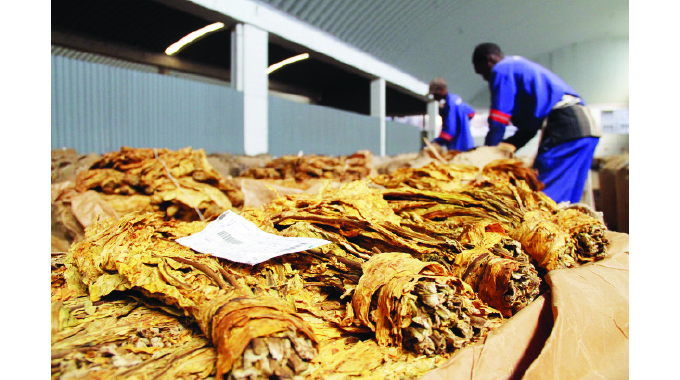
Herald Reporter
Tobacco farmers are getting a raw deal from third party contractors after it emerged that principal contractors are paying more than the surrogate, a development that gives credence to allegations of collusion between the two to rip-off farmers.
According to figures at hand, merchants were paying an average of US$2,82 per kilogramme while farmers were being paid an average of US$2,44 at third party contractors for the golden leaf and in some instances as less as US$1,98, according to statistics at hand.
Third party or surrogate merchants are engaged by principal merchants or off-takers in an arrangement where the latter sponsors tobacco production by funding farmers through inputs, working capital and technical expertise.
The discrepancy has led to growing fears of the collapse of Zimbabwe’s tobacco auction system with official data from Tobacco Industry and Marketing Board indicating that auction floors were trailing way behind revenues earned by contracting firms.
Statistics released by TIMB for July 6 2021, which was day 63, for example, show that more than US$470 million worth of tobacco was sold on contract while a paltry US$30 million was sold on the auction floor system.
Sales for day 62, July 5 2021 showed that US$467,1 million passed through the contract system while US$33 million went through the auction system.
This development continues to be a cause for concern for stakeholders particularly tobacco farmers and legislators given that the auction floor system has been the backbone of tobacco sales for decades.
Commenting on the industry, The Farmers Talk Club chief executive, Mr Phineas Mukomberanwa said there appeared to be collusion between merchants and surrogate farmers to suppress the prices thereby prejudicing farmers.
“You will notice that it is the big merchants who determine prices to be paid to farmers for both the auction system and the surrogate farmers,” he said.
TIMB spokesperson, Mrs Chelesani Moyo said the concept of surrogate farmers was a new structure where principal contractors engage them, incubate and develop and some of them have ultimately become stand-alone exporters.
